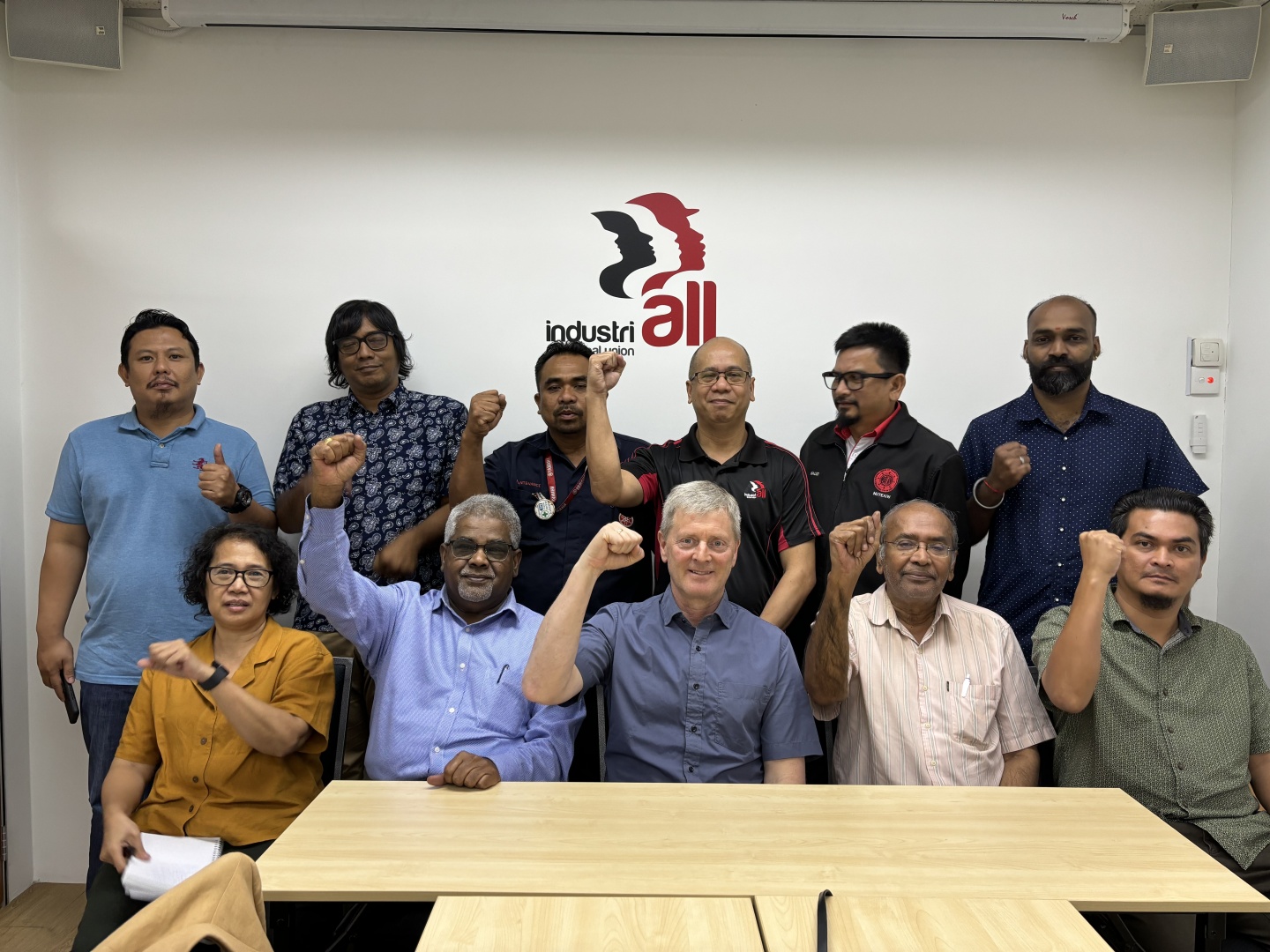5 April, 2024Malaysian and Philippine trade unionists expressed grave concern about the high cost of living and that they are united in demanding a living wage for workers and their families.
During a visit to the South East Asia regional office in Kuala Lumpur, IndustriALL general secretary Atle Høie attended two separate meetings, on 29 March and 1 April, with Malaysian and Philippine affiliates and discussed the conclusion of ILO meeting of experts on wage policies including living wages.
Atle Høie said the meeting provides an authoritative definition of a living wage, that it must afford a decent standard of living to workers and their families. He said it is now for national tripartite partners to determine the national definition and value.
“The conclusion emphasizes the importance of collective bargaining and social dialogue, which is underpinned by good faith and well-informed collective bargaining, the principle of equitable distribution of economic growth and freedom of association.”
Added Atle Høie.
In the South East Asia region, governments are deliberating different wage policies to address the phenomenon of the decoupling of labour productivity and wage growth.
The Malaysian government will implement a voluntary and productivity linked progressive wage policy in June. The pilot project will set wage scales for selected sectors and cover workers earning between RM1,500 (US$317) to RM4,999 (US$1,058). Eligible employers will receive a government subsidy of RM200 to RM300 (US$42.3-63.4) per month for a period of 12 months.
Gopal Kishnam Nadesan, IndustriALL executive committee member and Malaysia council secretary said:
“IndustriALL Malaysia council fully supports the progressive wage policy. Our manufacturing workers have been suffering stagnant wage growth. Those working for more than 20 years, their income is only slightly higher than the entry-level minimum wage earners. But we stress that the policy must be made mandatory.”
On the other hand, pro-labour Philippine legislators are pushing for the Wage Recovery Act of 2023, as the current wage-setting policy has deeply disappointed Philippine workers. Many are living in poverty after skyrocketing living costs. Philippine unions rally behind the initiative to increase the daily wage of PHP150 (US$2.7) for all private sector workers across the country.
“We welcome the conclusion of the ILO meeting of experts on wage policies including living wages. It is important that trade unions launch wage campaigns anchored on data and evidence-based approaches, analyzing the needs of workers and family members. It is trade unions’ responsibility to lift workers out of poverty and fight for a decent living wage.”
Said Eva Arcos, IndustriALL executive committee member and Associated Labor Union (ALU) national vice president.
Ramon Certeza, IndustriALL regional secretary of South East Asia said:
“It is evident that the global economic system is a failure that only favours few owners of capital resulting in inequality to the detriment of the working class and society. Workers demand a fair distribution of income out of their value creation. The ILO’s timely response to bring back the living wage in the debate in this period of spiraling price inflation requires building workers’ and unions capacity to engage meaningfully in wage determination structures at different levels. The IndustriALL South East Asia office ensures support on this process.”


